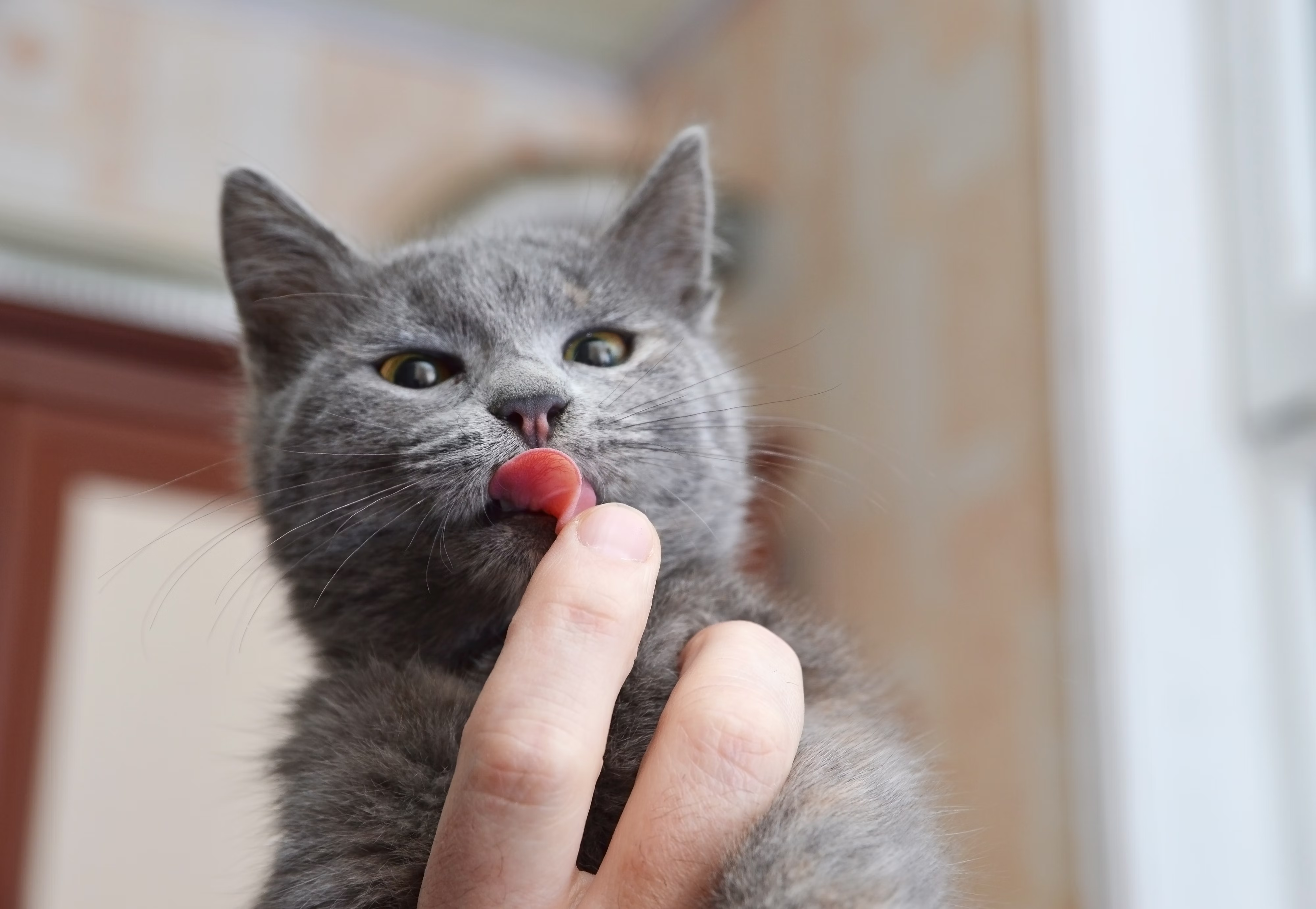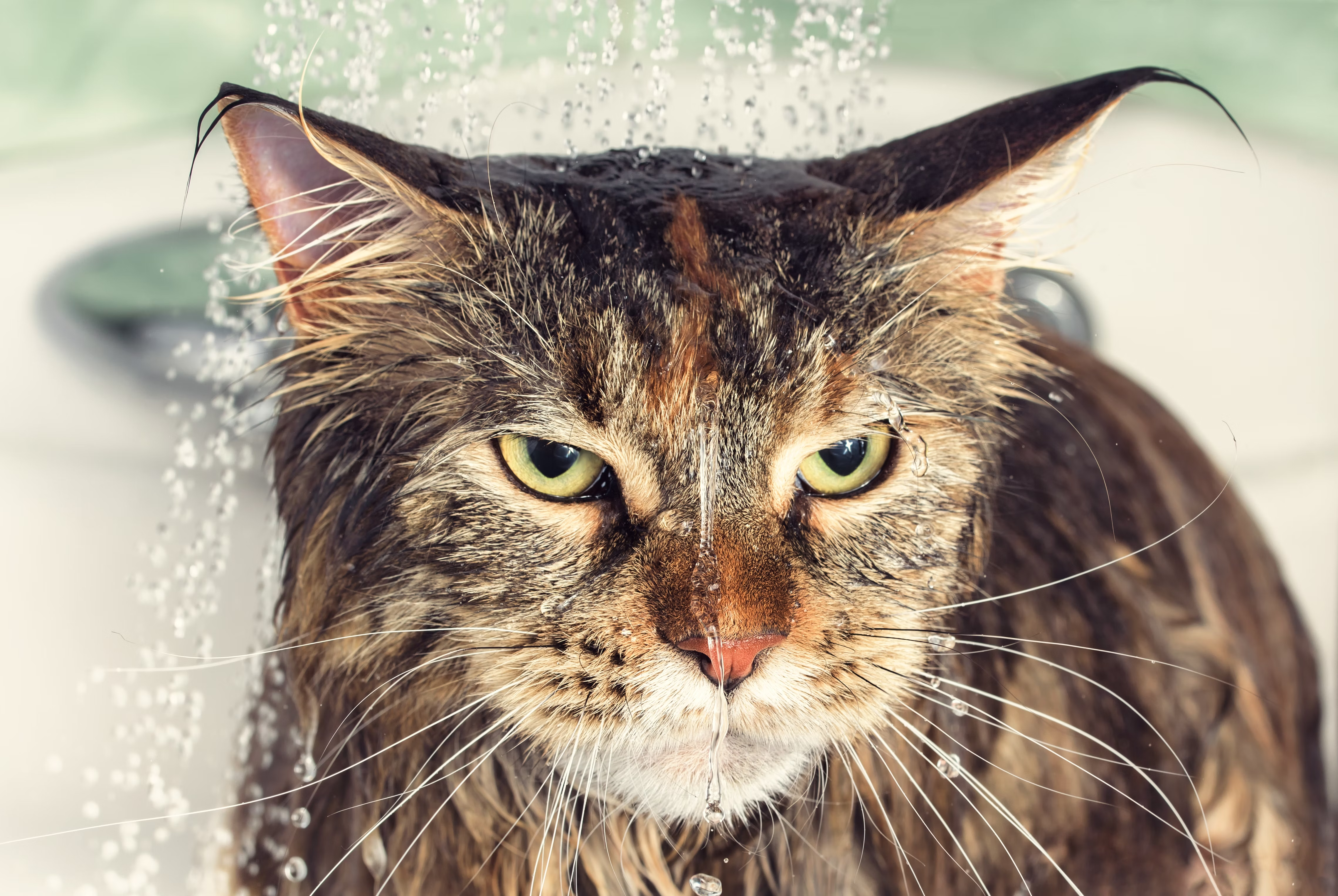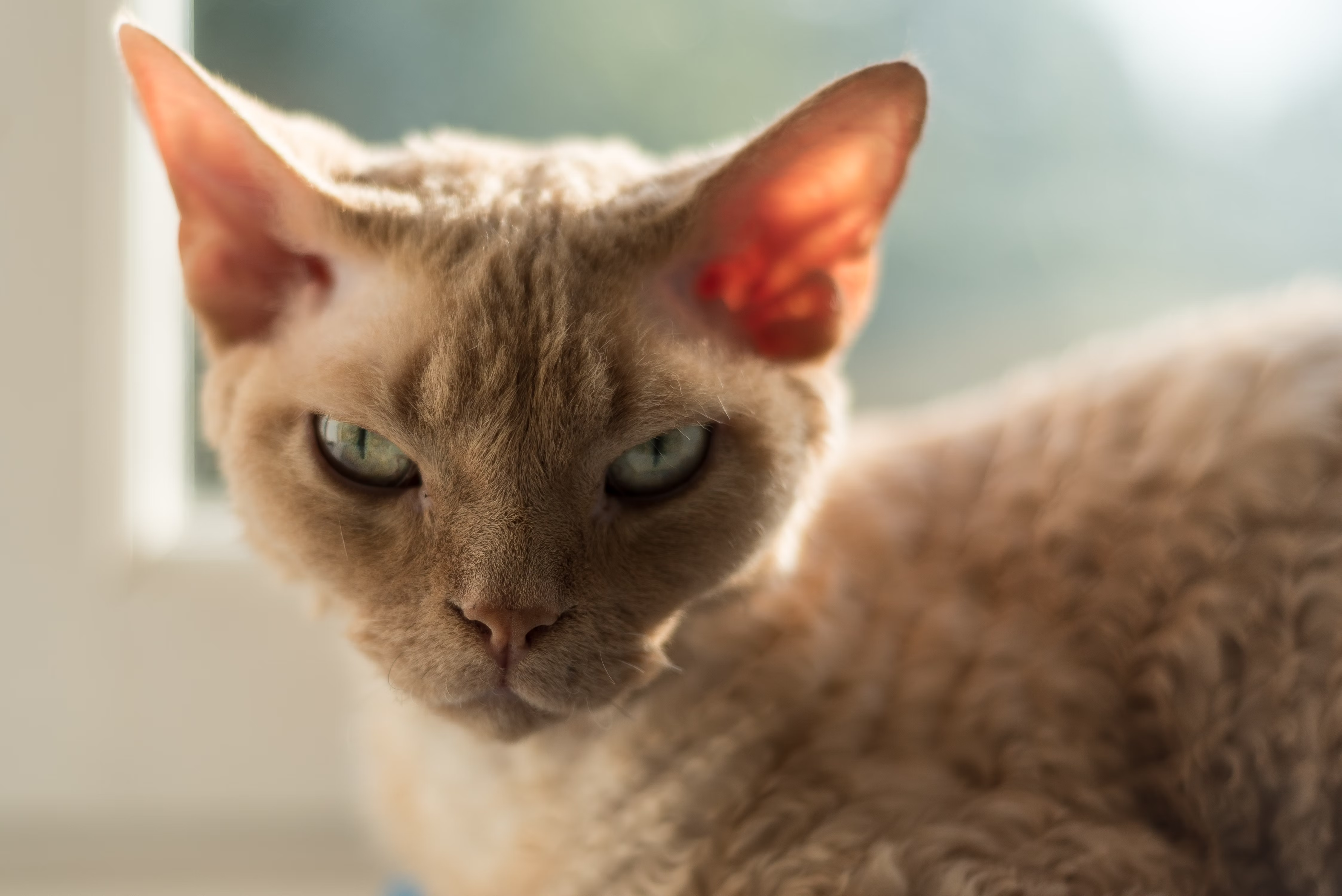One minute, you’re hanging out on the couch next to your cat, and the next minute, your feline friend starts licking your hand with their scratchy little tongue. It’s a nice gesture. Isn’t it?
While affection is one reason a cat may lick you, there are also other factors. Licking is a deeply rooted feline behavior with a variety of meanings. From marking territory to managing stress, your cat’s tongue is a communication tool. In this post, we’ll explore why cats lick, what this behavior reveals about your cat’s instincts or personality, and how breed plays a role.
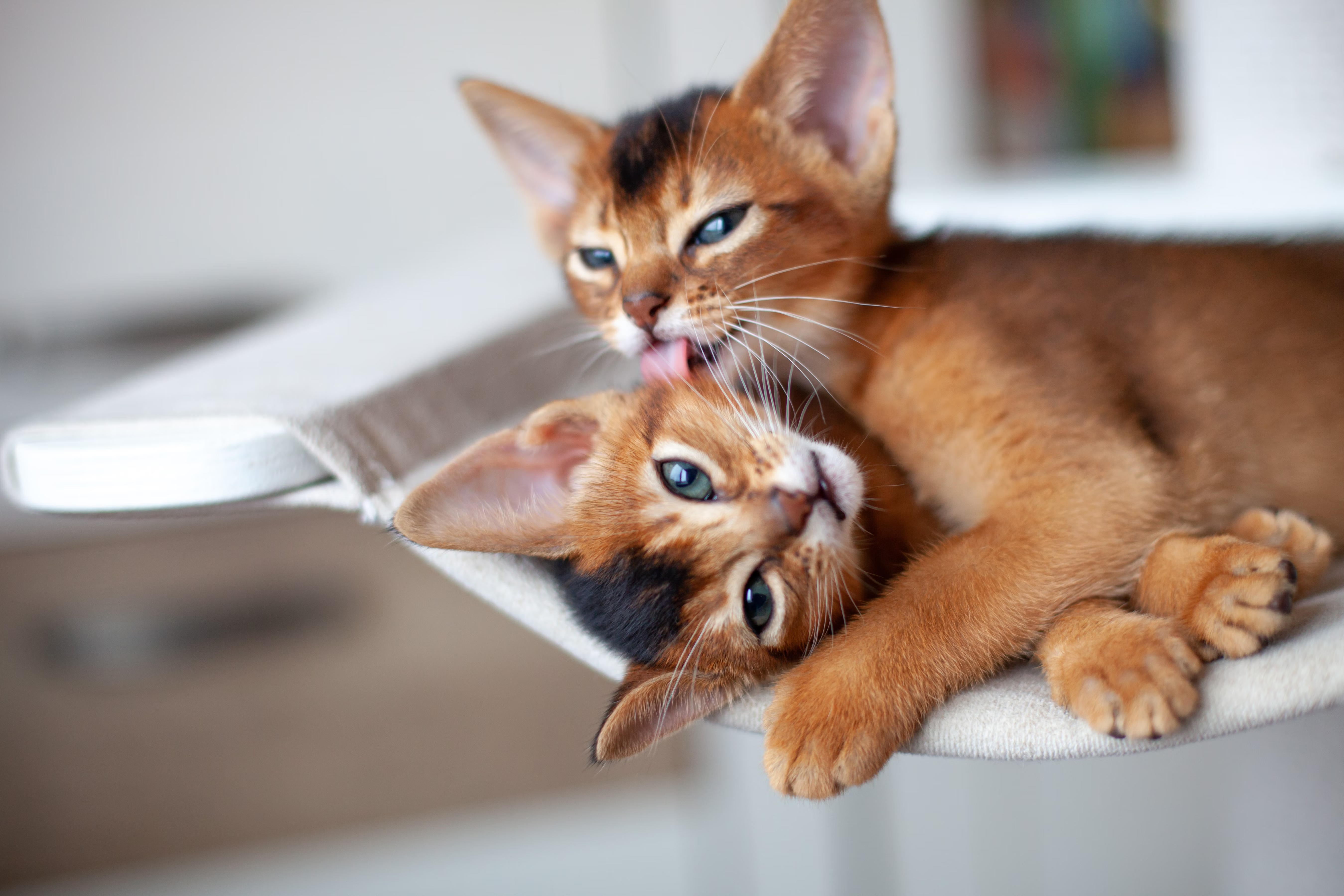
Why do cats lick?
Let’s start by breaking down what it might mean when a cat licks you.
It’s a sign of affection or bonding
One of the most common reasons cats lick is to show affection. In the feline world, mutual grooming is a bonding ritual. Understanding this hard-wired behavior in cats is helpful in making the connection between grooming and affection.
From the moment they’re born, kittens are groomed by their mothers. As they grow, they learn to groom themselves and each other. This behavior serves multiple functions: removing dirt and parasites, regulating body temperature, and calming the nervous system.
The urge to groom is incredibly strong in domestic cats. When cats groom each other, they’re not just helping with hygiene—they’re reinforcing social bonds and signaling trust. Some cats simply apply that instinct to their human companions.
So, when your cat licks you, it’s often their way of saying "you’re part of my group." This is especially common in cats that were well-socialized as kittens or have a strong bond with their human companions. In this context, licking is essentially your cat’s love language. Think of it as their version of a hug.
It’s how cats mark their territory
Another common reason why cats lick is to mark their territory. Cats have scent glands in various parts of their bodies, including their cheeks and mouths. When your cat licks you, they may be depositing their scent to "claim" you. It’s the same reason they rub against your legs or headbutt you. They’re building a shared scent profile with you that signals comfort and connection.
It relieves their stress
Licking can also be a form of self-soothing, especially in stressful situations. This behavior can extend to you, particularly if your cat finds comfort in your scent or presence.
However, excessive licking—whether directed at themselves, objects, or people—can be a sign of anxiety, boredom, or even an underlying medical condition. Compulsive grooming may lead to bald patches or irritated skin, a condition known as psychogenic alopecia.
If your cat’s licking seems obsessive or increases suddenly, it might be time to assess their environment and routine. Do they have enough enrichment? Are there recent changes in the household? Consulting your veterinarian or a feline behaviorist can help rule out medical causes and guide next steps.
Your cat likes the taste or texture
Another possible reason why your cat licks you is because they think your skin tastes good. Cats are often drawn to salty tastes or interesting textures. If you’ve just worked out, applied lotion, or handled food, your skin might be especially appealing.
This kind of licking is usually harmless, though you may want to discourage it if your cat is ingesting potentially harmful substances like scented lotions or topical medications. A quick rinse—or redirecting your cat’s attention with a toy—can help prevent overenthusiastic licking sessions.
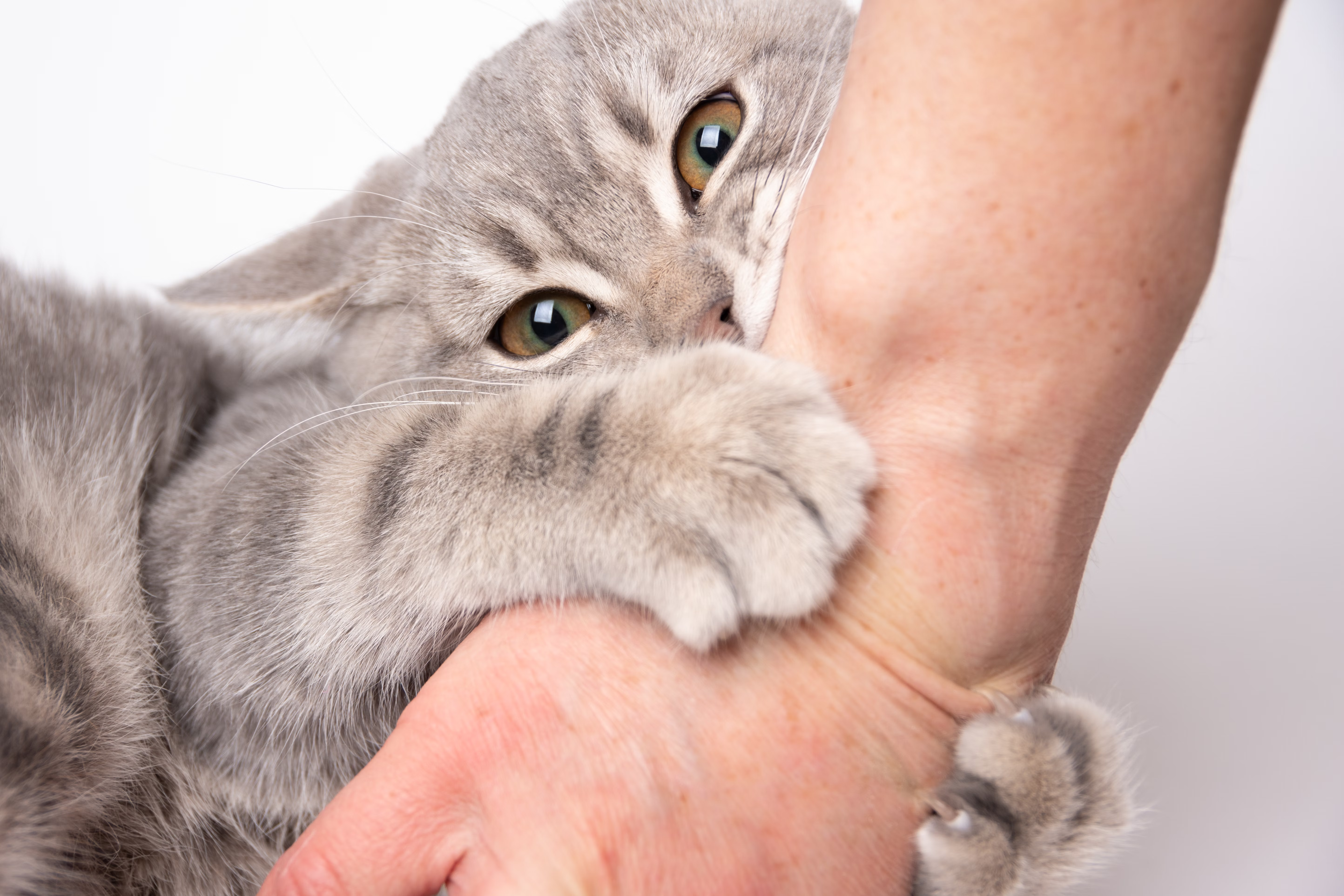
What it means when cats lick…then bite
If you’re a pet parent to a kitty, you’ve likely experienced your cat going from gentle licking to a sudden nip and wondered, Why does my cat lick me, then bite me?
This is often due to overstimulation or play behavior. Some cats have a low tolerance for physical contact and may enjoy licking as part of a grooming ritual—but only up to a point. Once they’re done engaging, a nip is their way of saying, "That’s enough."
Other times, the lick-bite combo is part of mock hunting or play. Watch your cat’s body language: flattened ears, twitching tail, or dilated pupils are all signs that their mood is shifting. If you notice these cues, it’s best to give them space or switch to interactive toys if they are feeling feisty.
When to be concerned about licking behavior
While licking is perfectly normal behavior for cats, excessive grooming or a sudden change in behavior warrants a closer look. Here are some signs that it might be time to visit a veterinarian:
- Bald spots or skin irritation from over-grooming
- Licking focused on one area of the body
- Sudden increase in grooming frequency
- Accompanying signs of stress or illness, like hiding, vocalization, or appetite changes
- Suspected reactions to food, flea bites, or environmental allergens
Licking caused by discomfort, anxiety, or dermatological issues may require medical or behavioral intervention. Your veterinarian can help determine if the cause is physical (like allergies or pain) or emotional (such as anxiety or boredom).
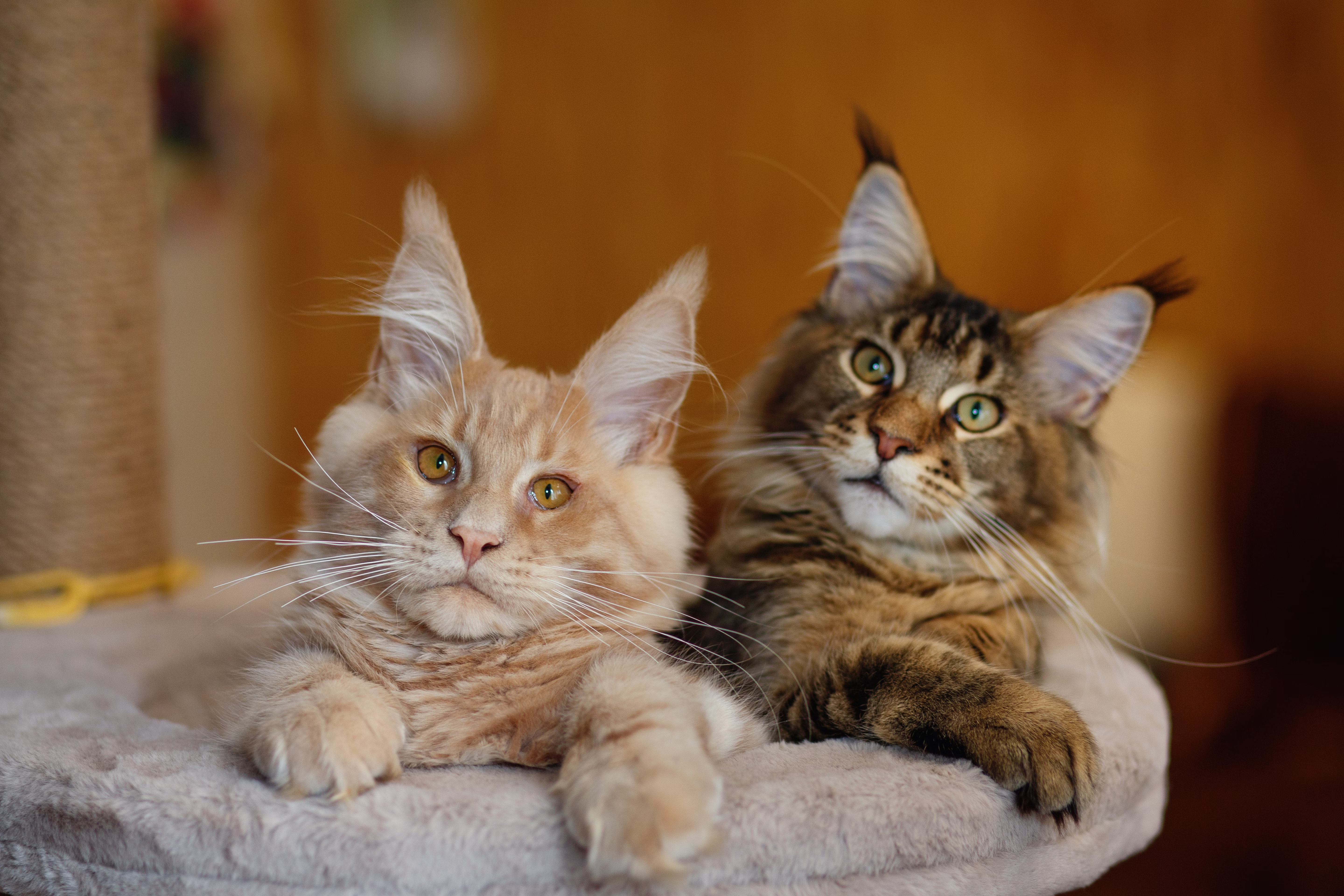
How DNA insights help you understand your cat better
Did you know that your cat’s breed background could influence their grooming habits? Some breeds, like the Siamese and Oriental Shorthair, Abyssinian, Maine Coon, and Burmese are known for being highly interactive and social. These cats may be more likely to engage in social grooming, including licking their humans.
Wisdom Panel™ Complete for Cats can give you insight into your cat’s breed mix and ancestry, which can help explain personality quirks like licking. Knowing your cat’s breed mix can also shed light on inherited health risks, behavioral tendencies, and grooming needs. It’s one more way to deepen your connection—and meet your cat’s unique needs.
